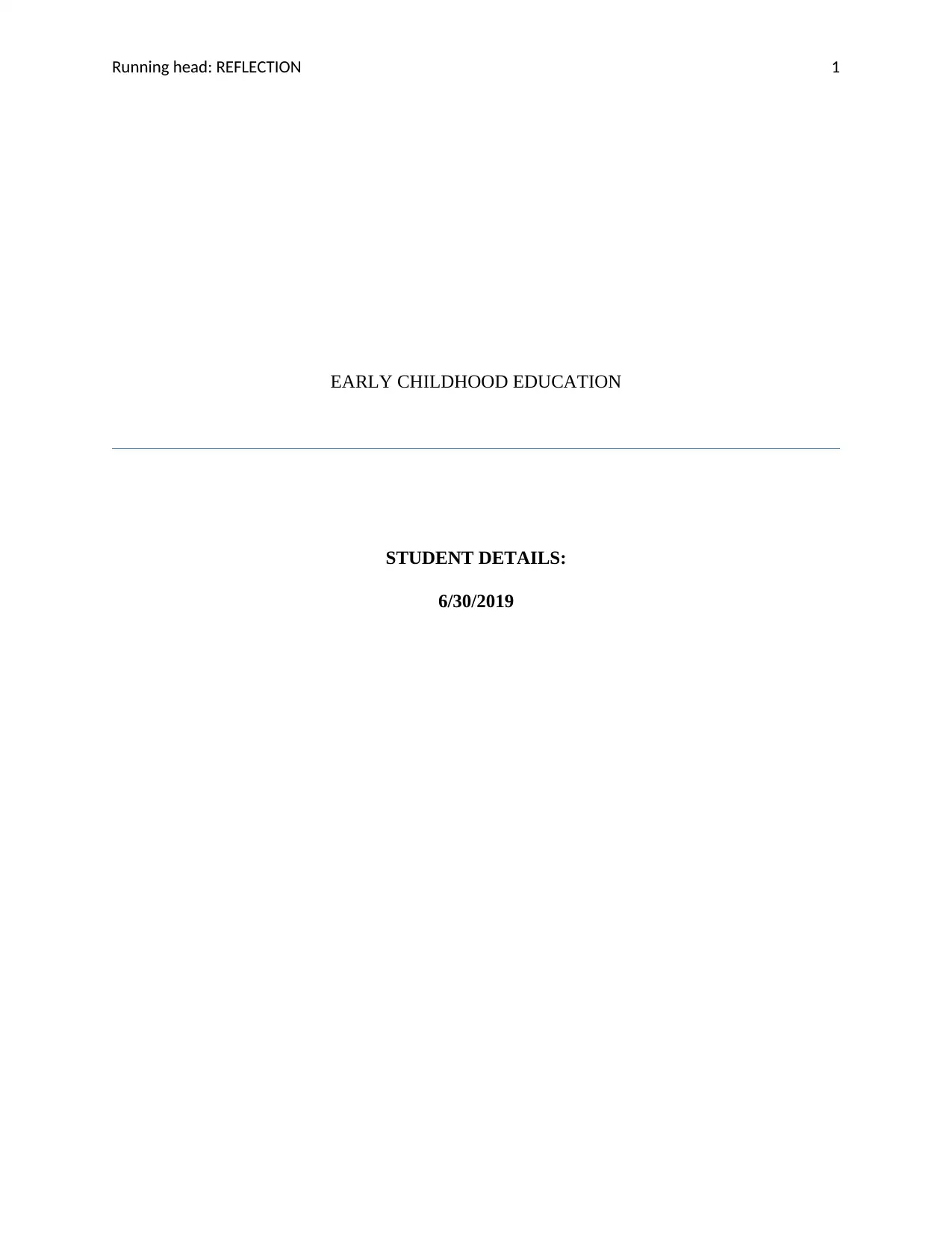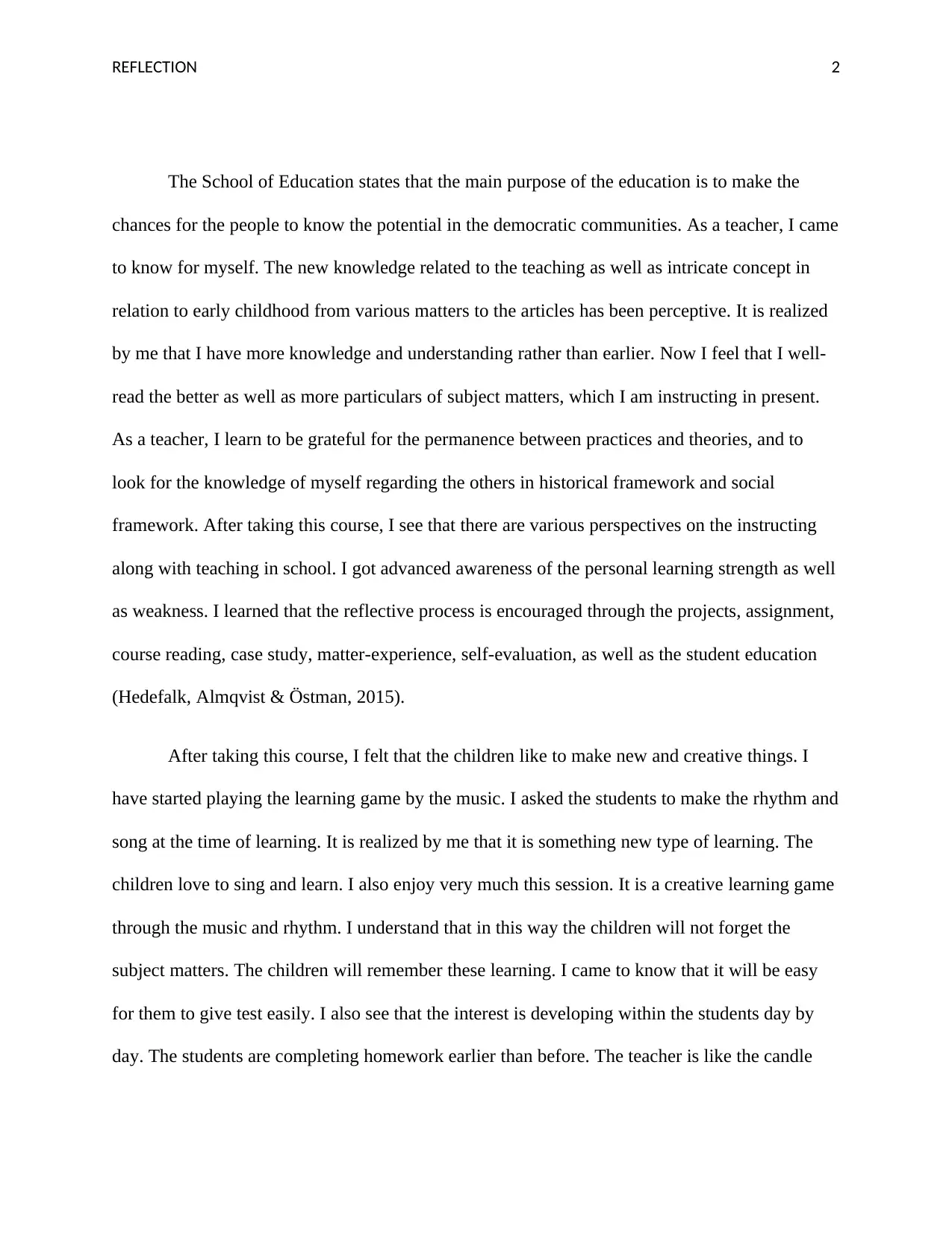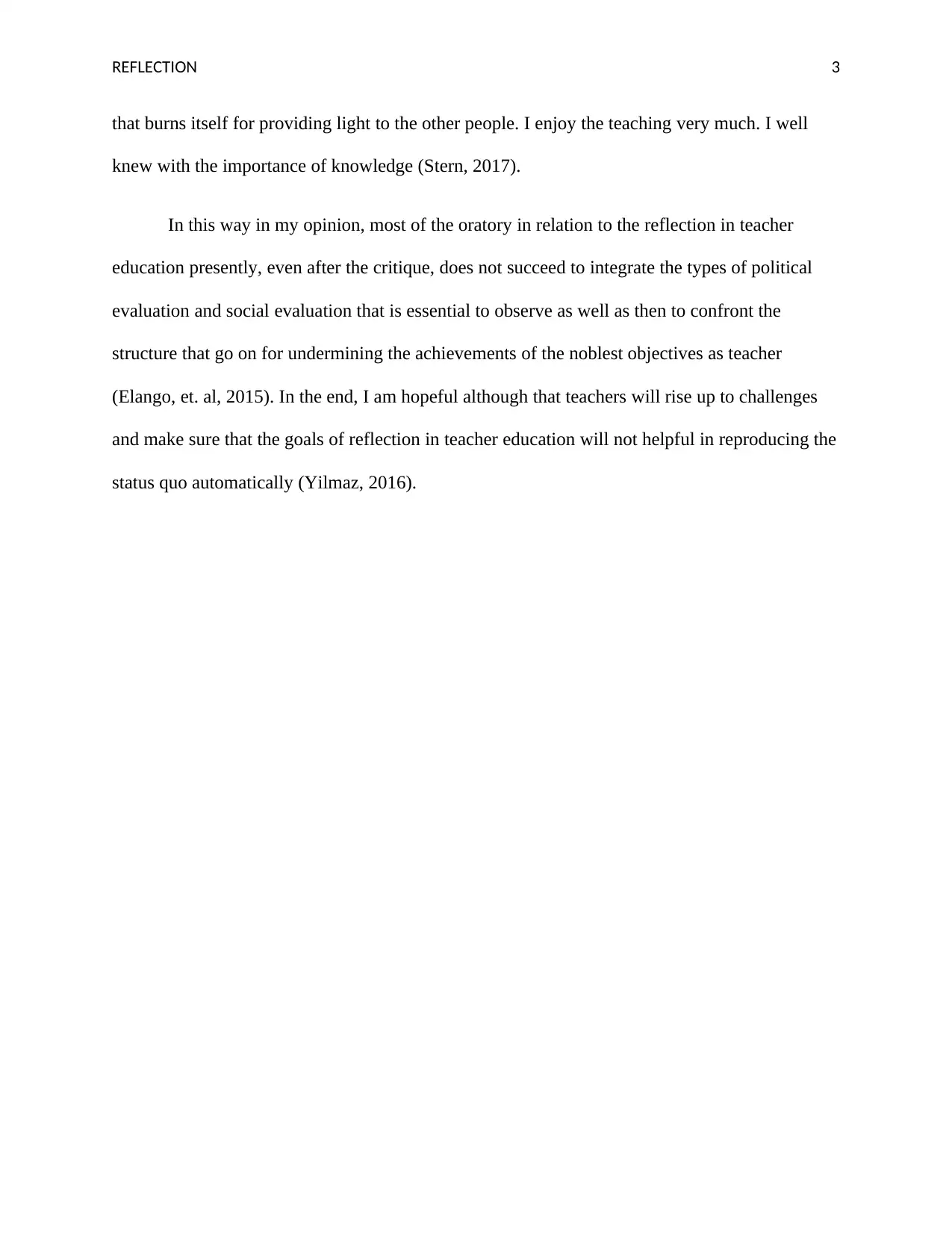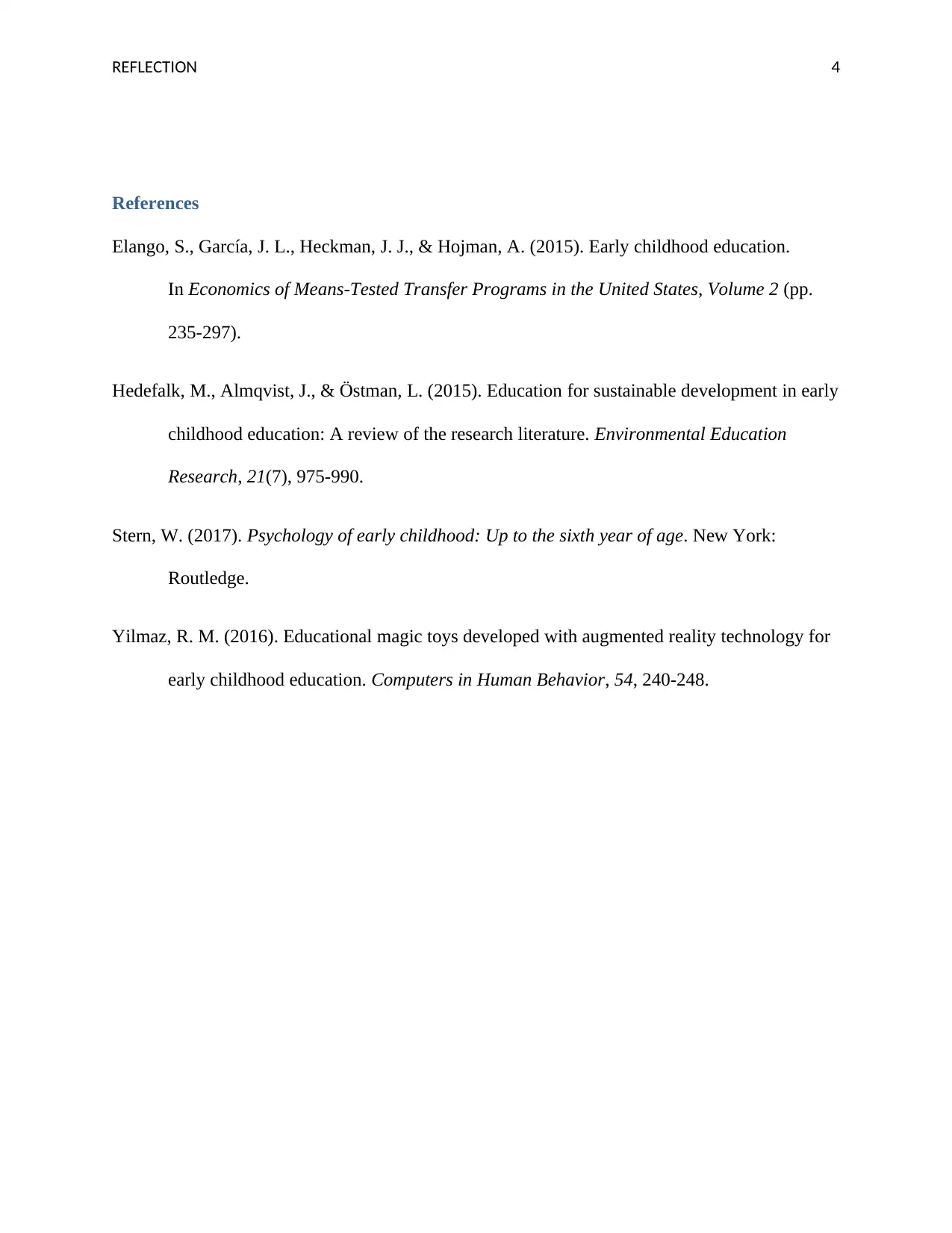EDUC 653: Reflection on Current Issues in Early Childhood Education
VerifiedAdded on 2022/11/28
|4
|683
|297
Discussion Board Post
AI Summary
This assignment presents a student's reflective discussion board post for EDUC 653, focusing on early childhood education. The student reflects on their learning journey, highlighting the insights gained from the course, including the importance of reflective practices, understanding diverse learners, and the impact of play-based learning, such as integrating music and rhythm into teaching. The student also discusses the significance of the School of Education's Conceptual Framework, personal growth, and the development of effective teaching strategies. The reflection incorporates references to relevant research, underscoring the student's enhanced understanding of teaching methodologies and child development. The assignment emphasizes the importance of continuous learning and adaptation in the field of early childhood education.
1 out of 4











![[object Object]](/_next/static/media/star-bottom.7253800d.svg)